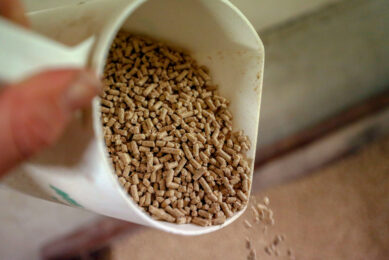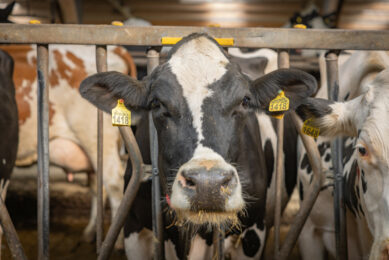Yeast for sport horses: Does it work?

Sport horses need to perform at their best and this requires optimum health and good nutrition. Brazilian researchers looked at supplementing sport and non-sport horses with yeast to see whether this has an effect on feed digestibility.
Performance horses are often fed diets high in starch-rich cereals which results in undigested starch reaching the caecum and colon. This in turn can lead to problems. It can be prevented by reducing starch intake, increasing starch digestion in the small intestine or adding yeast cultures to the diet in order to manipulate intestinal microbial activity. In ruminants, the application of yeast has already been shown to be very effective in improving the ruminal environment.
Potential to increase digestion
It has been stated that adding yeast to a horse diet may help maintain the balance of the intestinal microflora, improve digestion of dietary ingredients and help to control the intestinal environment. The current study investigated the effect of dietary yeast supplementation and exercise on digestibility, faecal yeast and bacterial counts, faecal concentration of volatile fatty acids and serum endotoxin levels in horses. The aim of this study was therefore to evaluate the effect of dietary supplementation of live yeast Saccharomyces cerevisiae NCYC 996 (SC) on digestibility, faecal microbiota and volatile fatty acids (VFA) and serum endotoxin levels in non-exercising and exercising horses.
Experimental set-up
For this study, 10 Arabian geldings were used in a 2 × 2 factorial design [10 horses, 2 treatments (with and without SC) and 2 periods (with and without exercise). The SC culture (7.5 g/meal; 1.5 × 1010 cfu/g) was given as a top-dressing. Each experimental period consisted of 90 days with a first phase of 30 days without exercise and a second phase of 60 days with exercise. In the second phase, all animals were exercised five times a week for 60 min at a maximum speed of 3.98 m/s on a mechanical circular exerciser. The horses were already accustomed to such exercise. After 15 days of dietary adaptation, a digestibility trial was undertaken, with total collection of faeces for 5 consecutive days. Apparent total tract digestibility (ATTD, %) of nutrients was calculated as: [(intake of nutrient (g) – nutrient in faeces (g))/ intake of nutrient (g) × 100].
No significant effects
It was shown that there was no effect of yeast supplementation on digestibility. Faecal yeast and bacterial counts, VFA and serum endotoxin levels were unaffected by yeast supplementation and exercise. The researchers therefore recommend to further study the effect of yeast supplementation on exercising horses.
This research paper was published in Livestock Science.











